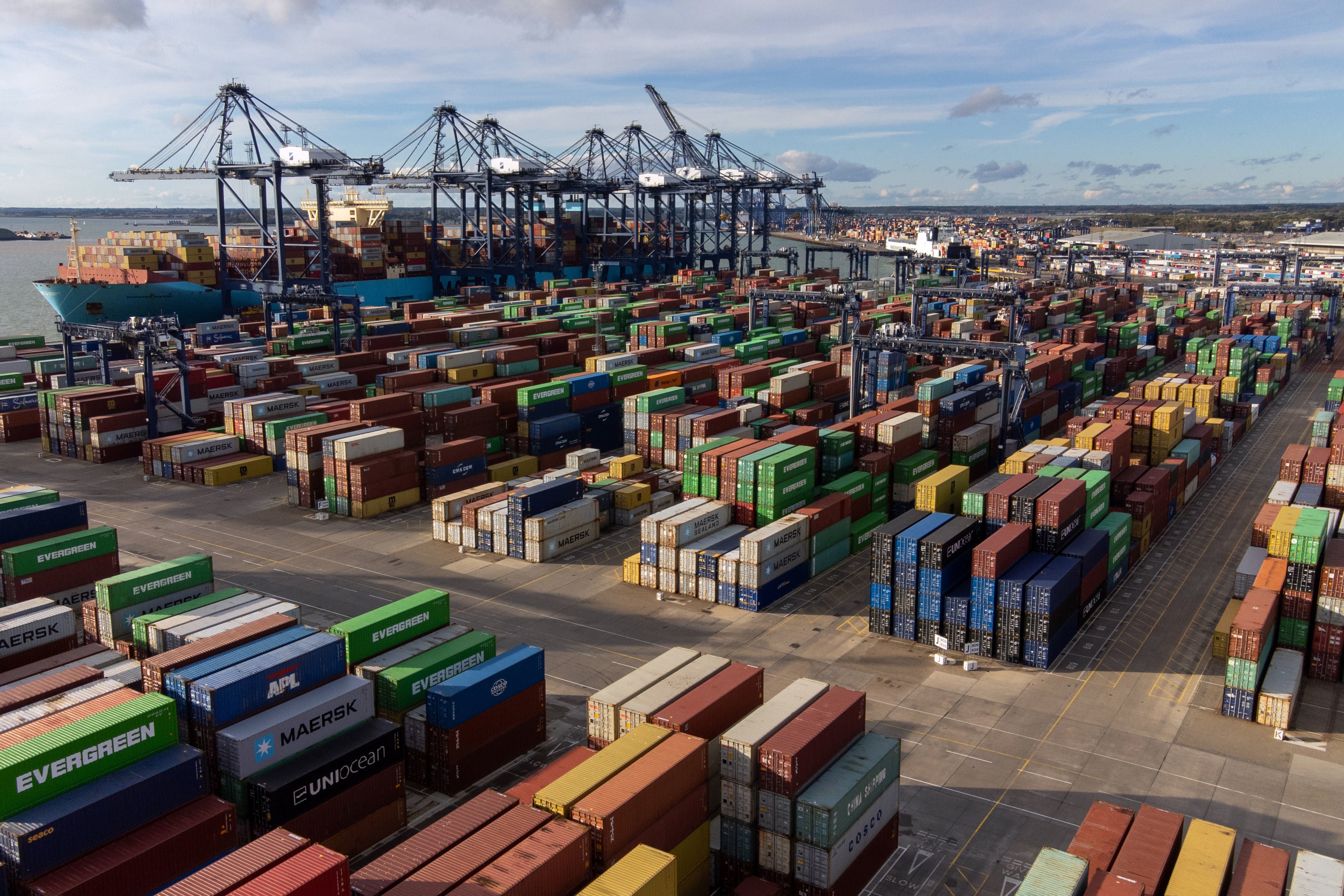The Independent's journalism is supported by our readers. When you purchase through links on our site, we may earn commission.
I’m helping to organise a strike at the UK’s biggest container port – this is why
Unless a substantially improved offer is placed on the table, strike action will take place which will directly affect the UK’s supply chain


Your support helps us to tell the story
From reproductive rights to climate change to Big Tech, The Independent is on the ground when the story is developing. Whether it's investigating the financials of Elon Musk's pro-Trump PAC or producing our latest documentary, 'The A Word', which shines a light on the American women fighting for reproductive rights, we know how important it is to parse out the facts from the messaging.
At such a critical moment in US history, we need reporters on the ground. Your donation allows us to keep sending journalists to speak to both sides of the story.
The Independent is trusted by Americans across the entire political spectrum. And unlike many other quality news outlets, we choose not to lock Americans out of our reporting and analysis with paywalls. We believe quality journalism should be available to everyone, paid for by those who can afford it.
Your support makes all the difference.Later this month, 1,800 manual workers at the Port of Felixstowe who are members of Unite, the UK’s leading union, are set to walk out in the first of a series of strikes over a pay offer of five per cent. Why? Well, because this is more than six per cent below the real rate of inflation (RPI) and a substantial real terms pay cut masquerading as a pay increase.
Felixstowe is the UK’s largest container port. Some 48 per cent of the UK’s goods imported in containers arrive at Felixstowe. The port is owned by Hutchison Port Holdings, a division of CK Hutchison Holdings – which owns 48 port operations around the world.
A strike could bring operations to a standstill – but support for strike action was overwhelming among Unite members. In fact, there was a 92 per cent “yes” vote on an 80 per cent turnout. Unless a substantially improved offer is placed on the table, strike action will take place – which will directly affect the UK’s supply chain and will have major implications for both the maritime and haulage sectors. When Unite members speak in this way, we need to listen.
Shortly after the ballot result was announced, a radio interviewer asked me: “Communication workers are striking, Railway workers are striking, now Dock workers are striking… but how do you think ordinary everyday people feel?” Well, last time I checked dock workers were “ordinary” people.
Meanwhile, The Daily Express shrieked: “Dock workers accused of living in 1970s as UK’s largest shipping port set for strike chaos.”
Accused by whom? Jacob Rees-Mogg as it turned out, who wheeled out the old lie about wage settlements fuelling inflation. Except that – as Frankie Boyle pithily tweeted on 22 June: “Weird how inflation is going up when nobody’s had a pay rise yet. Almost as if it’s driven by profits”. Everywhere, the evidence suggests that it is corporate profits not worker’s wages which are driving the cost of living crisis.
To increase the wage bill at Felixstowe by one per cent would cost approximately £1.4 million; which would appear to be a huge sum of money – until we see that in 2020, pre-tax profits amounted to £61 million and a further £99 million was paid as dividends to shareholders.
Prior to 2009, the percentage of turnover paid as wages at Felixstowe was more than 50 per cent, but since that time it has remained well below that – currently sitting at around 47 per cent. In effect, the shareholders are getting richer at the expense of the workforce. Despite the company’s very high profit margins, employees have seen no real-terms pay increase since 2017.
As we are warned that household annual energy bills may hit an average of £3,850, Centrica are reporting operating profits of £1.3 billion and proposing share payouts of £59 million. Shell Chief Executive Ben Van Bueurden, after announcing shareholder payouts worth £6.5 billion, commenting on what could be done for struggling households: “It is what it is”, he said.
Meanwhile, a recent survey by the Centre for Business and Economic Research showed that a fifth of UK households now have an average shortfall of £60 a week between earnings and essential costs. With contrasts as stark as this, you don’t need a background in political economy to see that it’s grotesquely unjust and unsustainable.
Felixstowe dock workers understand completely the way in which their relentless work directly creates the massive profits – the gigantic quay with its ships, cranes, containers and trucks is a schematic diagram of international commerce. They have decided that enough is enough.
The difference between them and millions of other workers who feel the same way is that – like their counterparts in rail and the communications industries – they have an organised and unified voice through their trade union.
In times like these, arguments about whether to use RPI or CPI measures of inflation or whether this or that settlement will seem “fair” to other workers or to right-wing commentators become irrelevant. There is just the certainty that something has to change.
Workers don’t need a number to tell them that the cost of living has gone from “difficult” to “impossible”. They are indeed those “ordinary everyday people” that the interviewer was referring to.
To keep up to speed with all the latest opinions and comment sign up to our free weekly Voices Dispatches newsletter by clicking here
Unite’s position – and that of the union movement – is simple: where people wish to join us and organise for better pay and conditions, we will welcome you and back you. All workers with the exception of the armed forces and police have the right to take industrial action. The right to withdraw labour is a basic human right.
At the bargaining table, company representatives seem bewildered that the union would take issue with the range of possible outcomes being fixed between whether to accept a large or small real terms pay cut.
The fact that both sides believe they are applying common sense seems the surest sign that we are not all in the same boat. We are barely in the same ocean.
Miles Hubbard is regional officer for Unite and represents the workforce at the Port of Felixstowe
Join our commenting forum
Join thought-provoking conversations, follow other Independent readers and see their replies
Comments